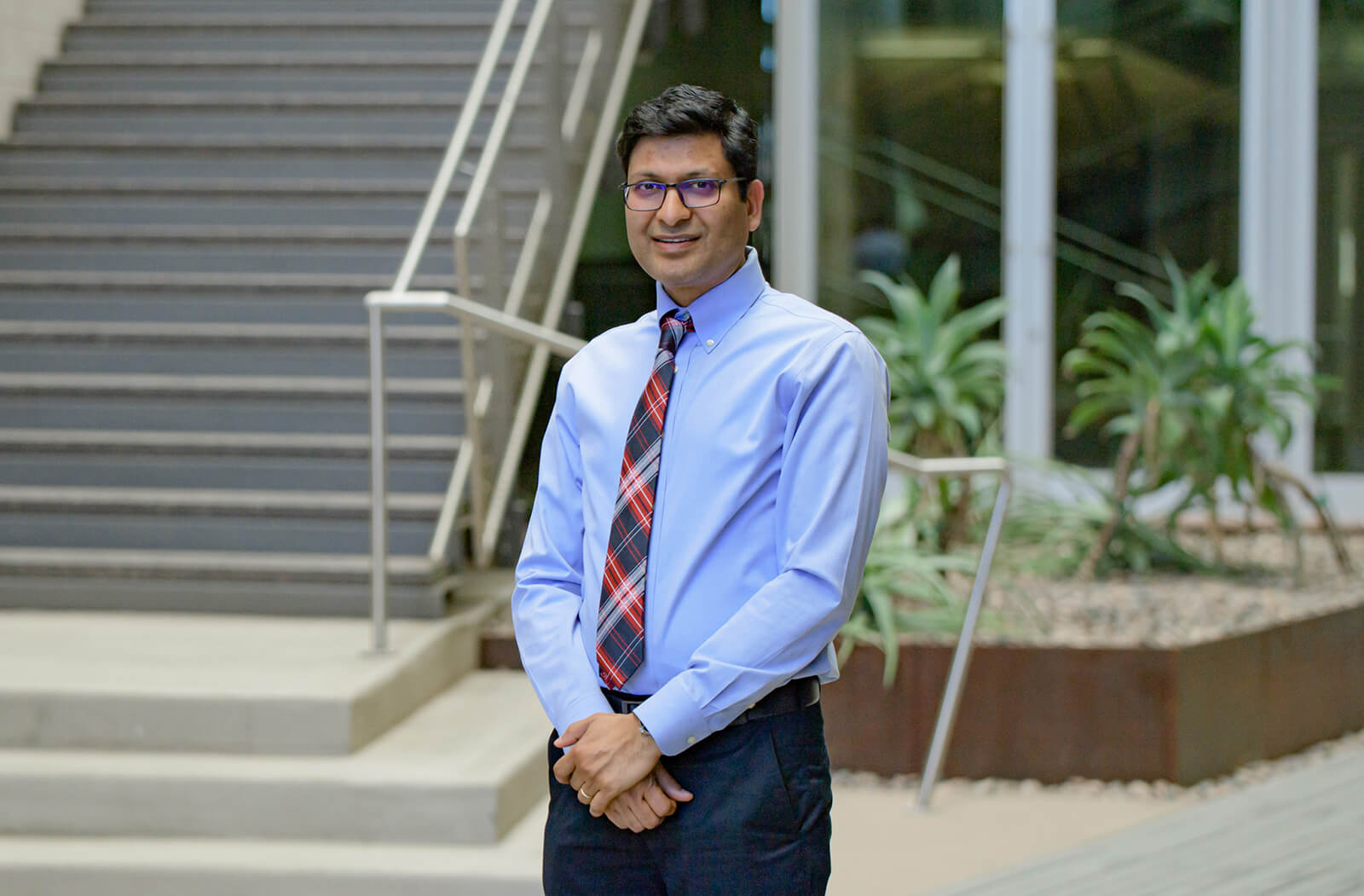
Banner – University Medical Center Phoenix Adds Accommodations to Help Geriatric Patients Navigate the Emergency Department

Banner – University Medical Center Phoenix is changing the way it treats patients 65 years and older who show up at the emergency department.
The medical center was the first in Arizona to receive Geriatric Emergency Department Accreditation from the American College of Emergency Physicians. The program, which has accredited 130 hospitals nationally and internationally, was developed by leaders in emergency medicine to ensure that geriatric patients receive well-coordinated, quality care.
Nimit Agarwal, MD, director of the Division of Geriatric Medicine at the University of Arizona College of Medicine – Phoenix and the Center for Healthy Aging at Banner Health in Phoenix, began building a safer emergency department for seniors when he saw a need for more specialized geriatric care.
“When I was training in internal medicine I saw a lot my physicians struggle with the management of geriatric syndromes,” he said. “I didn’t see any standardized care or consistency in training. That led me to try to figure out what we could do.”
More than half of Americans 65 or older have a chronic condition and many have multiple conditions, making a trip to the ER complicated for the patient and the physician. Banner Health’s emergency department sees more than 1,000 patients older than 65 each month.
What distinguishes a geriatric emergency department from a standard emergency department are factors like geriatric education for physicians and nurses and important details such as access to mobility aids — like canes and four-point walkers, hearing devices or magnifiers — in case a patient forgets to bring their glasses, non-slip socks, easy access to food and drink 24/7 and extra pillows and blankets.
Dr. Agarwal said the approach is a multi-disciplinary one, where nurses are specially trained to detect whether a patient is a fall risk, pharmacists review medications because many elderly patients take multiple medications each day and physicians receive training every month on geriatric care.
The Banner Health geriatric emergency department in Phoenix has earned a Level 3 Bronze accreditation, which specifies that the department has one or more specific initiatives that will elevate the level of care for seniors and has the specified personnel to implement the efforts.
In the emergency department, age-friendly signs on sliding glass doors indicate the rooms reserved for older patients. The rooms feature a large analog clock, two chairs per patient bed, enhanced lighting, noise reduction, clip-on fans and coloring books for seniors.
The medical center is continuing to increase the level of geriatric care not only in the emergency department, but throughout the hospital.
“Our goal is to provide that continued care through the spectrum, not just in the emergency department but in the hospital; and, hopefully, when they get discharged from the hospital, we can continue that level of care,” Dr. Agarwal said.
About the College
Founded in 2007, the University of Arizona College of Medicine – Phoenix inspires and trains exemplary physicians, scientists and leaders to advance its core missions in education, research, clinical care and service to communities across Arizona. The college’s strength lies in our collaborations and partnerships with clinical affiliates, community organizations and industry sponsors. With our primary affiliate, Banner Health, we are recognized as the premier academic medical center in Phoenix. As an anchor institution of the Phoenix Bioscience Core, the college is home to signature research programs in neurosciences, cardiopulmonary diseases, immunology, informatics and metabolism. These focus areas uniquely position us to drive biomedical research and bolster economic development in the region.
As an urban institution with strong roots in rural and tribal health, the college has graduated more than 1,000 physicians and matriculates 130 students each year. Greater than 60% of matriculating students are from Arizona and many continue training at our GME sponsored residency programs, ultimately pursuing local academic and community-based opportunities. While our traditional four-year program continues to thrive, we will launch our recently approved accelerated three-year medical student curriculum with exclusive focus on primary care. This program is designed to further enhance workforce retention needs across Arizona.
The college has embarked on our strategic plan for 2025 to 2030. Learn more.